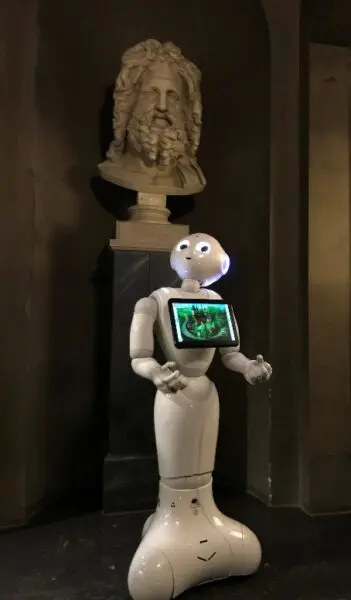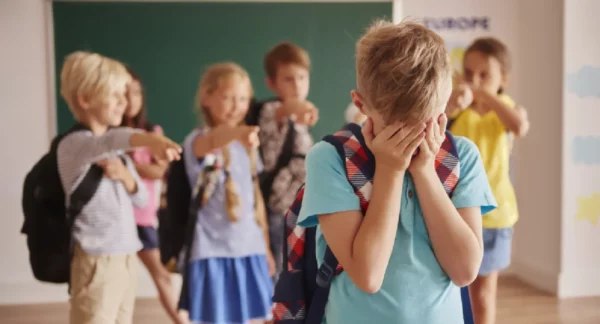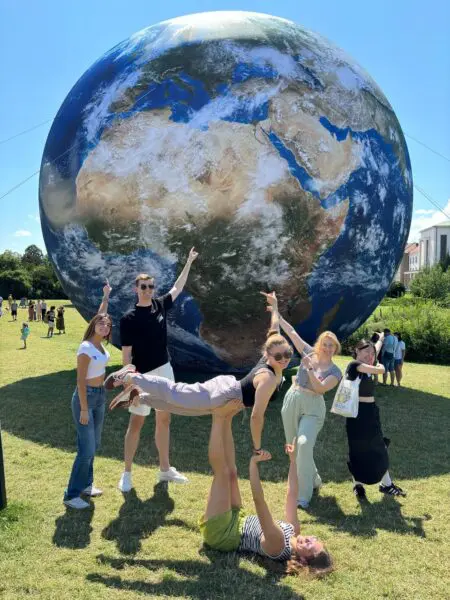
Tallinn, Estonia
Robotics in Primary Education
When:
31 July - 02 August 2025
Credits:
2 EC
Read more
Educational Sciences Summer Course
When:
18 August - 23 August 2025
School:
University of Groningen Summer Schools
Institution:
University of Groningen
City:
Country:
Language:
English
Credits:
3 EC
Fee:
350 EUR

Educational practices have always drawn from a rich tapestry of knowledge and relied on technological infrastructures. From blackboards and standardized testing frameworks to learning management systems and AI-driven assessment tools, science and technology have profoundly shaped the design and delivery of education. Far from being neutral, these systems embed societal norms, cultural values, and political priorities, with scientific and technological innovations constantly redefining educational realities. They transform education into a dynamic arena where science, technology, and society converge and co-evolve.
This summer school explores how Science and Technology Studies (STS) provides a critical lens to examine these dynamics - contemporary and historical - across different local, national or global contexts. As an interdisciplinary field that investigates how science, technology, and society are co-produced, STS offers concepts and methods that enable researchers to analyze the complex interactions between knowledge, technology, and education, revealing the social, political, and ethical dimensions at play.
The summer school welcomes doctoral candidates, post-docs and early-career researchers from diverse disciplinary backgrounds in the humanities and the social and educational sciences. The program is intended for researchers already adopting STS approaches in their work, as well as those with curiosity about STS and an interest in enhancing their analytical toolkit. Whether you are working with contemporary or historical perspectives on topics such as digital technologies in education, policy analysis, curriculum studies, classroom studies, educational governance, or the socio-materiality of technological innovations, this program offers a unique space to engage with like-minded scholars and explore how STS concepts and methodological sensitivities can inform your research project.
Throughout the program, participants will engage with core STS concepts and explore how they can be applied in educational research. A strong emphasis is placed on methodological reflection, encouraging participants to engage with key questions such as: how can STS-informed methods contribute to educational research or research on education in the fields of humanities and the social sciences? What types of sources are needed for STS-informed research practices and how should they be interpreted? What challenges emerge when studying the sociomateriality of educational practices? Through these discussions, participants will expand and refine their analytical approaches and gain deeper insights into the emerging and historical relationship between education, science, and technology.
Key features include lectures and discussions led by internationally renowned scholars, providing a stimulating environment for intellectual exchange. Collaborative research sessions will offer participants the opportunity to present their projects, receive constructive feedback, and engage with their peers’ work.
This summer school is taught by a group of internationally renowned scholars with diverse expertise, including Radhika Gorur, Nelli Piattoeva, Elin Sundström Sjödin, Camilla Addey, Lina Rahm, and Christian Lundahl.
Lourens van Haaften
We welcome doctoral candidates, post-docs and early-career researchers from diverse disciplinary backgrounds in the humanities and the social and educational sciences.
Participants are expected to have a proficient command of English, enabling them to actively engage in discussions and effectively present their own work
After this course you will be able to:
1. Develop STS sensitivity and deepen knowledge of the core premises of STS research as they relate to educational questions and education as an empirical phenomena.
2. Strengthen your ability to apply an STS lens in key educational debates by analyzing infrastructures, sociotechnical imaginaries, policy frameworks, and socio-material dimensions of education.
3. Critically reflect on research methods, source interpretation, and methodological challenges, enhancing your capacity for methodological reflection.
4. Learn to effectively communicate theoretical insights, construct coherent academic arguments, and engage in scholarly discussions during seminars and workshops.
Workload
- Preparation: 48 hours
- Lectures, seminars and workshops: 36 hours
Upon successful completion of the programme, the Summer School offers a Certificate of Attendance that mentions the workload of 84 hours (28 hours corresponds to 1 ECTS). Students can apply for recognition of these credits to the relevant authorities in their home institutions, therefore the final decision on awarding credits is at the discretion of their home institutions. We will be happy to provide any necessary information that might be requested in addition to the certificate of attendance.
Fee
350 EUR, for students from the universities of the ENLIGHT network, including accommodation
Fee
400 EUR, for students from other universities (non-UG/non-ENLIGHT)
100 - for University of Groningen students, not including accommodation
When:
18 August - 23 August 2025
School:
University of Groningen Summer Schools
Institution:
University of Groningen
Language:
English
Credits:
3 EC

Tallinn, Estonia
When:
31 July - 02 August 2025
Credits:
2 EC
Read more

Tallinn, Estonia
When:
21 July - 01 August 2025
Credits:
1.5 EC
Read more

Brno, Czechia
When:
13 July - 26 July 2025
Credits:
4 EC
Read more